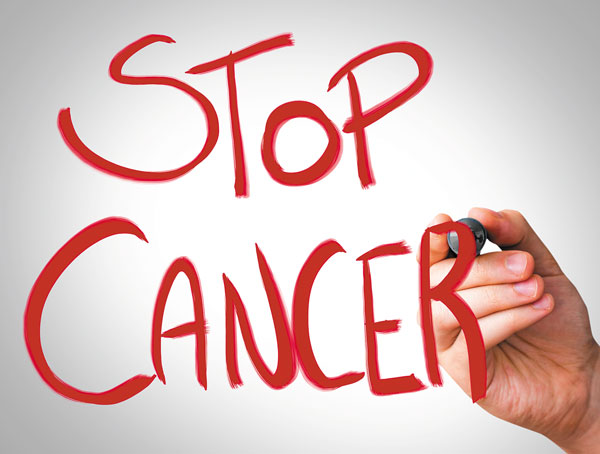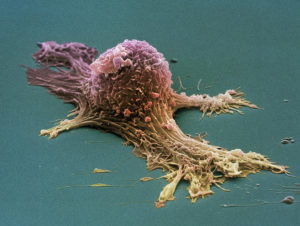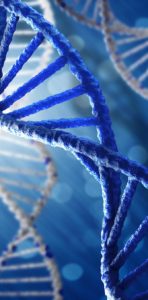
1) Most of the time – that is over 60 percent of the time – cancer happens due to purely random chance. There is no way to prevent this. And the longer one lives, the longer the chance of such random events. In fact, this is a purely statistical phenomenon. If a person has more cells – say a tall person compared to a short person – the taller person has a slightly higher risk of cancer. And therefore, cancer is more common as we get older as cells had longer time to acquire mutations, either randomly or from secondary causes

2) Cancer is almost never caused by a single mutation but due to multiple mutations. So-called “double hit hypothesis”. If one has a strong family history, they are born with certain important genes like BRCA already mutated, so higher risk of cancer which can also develop at an earlier age. (Note here: family history of cancer means they have close family members who developed cancer at an unusually early age. Having a mother who developed breast cancer at age 75 year is not a strong family history but having a mother who had breast cancer at age 45 is a strong family history). Heredity may play a role in about 5 percent of all cancers.
3) Among preventable causes of cancer: Unhealthy food habits, smoking, excess alcohol, exposure to virus, chemicals and excessive sun exposure are some of the most common causes and may contribute to up to 35 percent of all cancers. However, this is the only 35 percent one has any control, so it is crucial to modify these risk factors. Of the preventable causes tobacco smoking remains the single most important preventable cause of cancer. When tobacco is combined with excess amount of alcohol, the risk of cancer is multiplied.

4) Regarding diet and cancer: No need to remember of a separate diet to prevent cancer – what is generally considered heart healthy is also good to prevent cancer – less processed food, less fat and empty carbs, avoid over cooking, increase fruits and vegetables and naturally coloured foods. A note of caution about fruits here: Avoid too much fruits as many of them have a high glycemic index.
5) Exercise. Moderate exercise is shown to decrease

recurrent risk of early stage breast and other cancers. By decreasing inflammation and improving insulin sensitivity of cells, moderate exercise could help especially against the so called “metabolic syndrome related” cancers. These include cancers of the breast, endometrium, prostate, ovary, colon, and esophagus. As obesity, type 2 diabetes and other life style related illnesses increase in a population, it is often associated with a corresponding increase in the incidence of these metabolic syndrome associated cancers also.
6) Many viruses are implicated as the cause of several common cancers (examples being Hepatitis B causing liver cancer, HPV causing oral and cervical cancers). If a vaccination is available against such virus – as is the case of Hepatitis B and HPV – it could be one of the steps to prevent cancer
7) We are learning increasingly on the role of immune surveillance in cancer as well as immune based therapies for cancer are now becoming common place. Diseases that depress immune system increase the risk of cancers. And there is now data that immune system could also be decreased by previously unacknowledged issues like constant stress, lack of adequate sleep and so on.
8) Common scare mongering about cancer caused by the likes of microwave, cell phones etc.: Very

Little if any actual data in humans. Use common sense but in general these are much less risky (if any risk at all) than known agents like over cooked meat and tobacco.
9) No Universal blood test for early detection of cancer is available yet. Good practice to see a doctor every 1-2 yearly for a complete physical examination and do appropriate screenings based on one’s age – like colonoscopy (or the new Cologuard testing) starting age 50.
If one has a strong family history of certain cancers – start screening 10 years prior to the family member’s age of onset (that is: if mother had breast cancer at age 45, daughter should start screening at age 35)
10) Blood based detection of cancer based on mutated DNA strands and aberrant proteins are already available for those who have a known diagnosis of cancer. However, this is not yet commercially available nor validated as a screening test. But likely to become available in the next few years though whom and when to test are likely to remain controversial like existing screening tests (unnecessary worry from false positives, complications from unwanted imaging and biopsy etc.)
So, in short – there is no way to prevent all cancers as far as we know but we could modify life style to prevent nearly 1/3rd of all cancers. And one should also take a proactive approach to one’s health by doing available screening tests like colonoscopy, mammograms, and pap smear to detect some of the common cancers early at a stage when they can be fully cured.
Dr. Khaleel Ashraf
American Board Certified in Internal Medicine, Hematology and Oncology